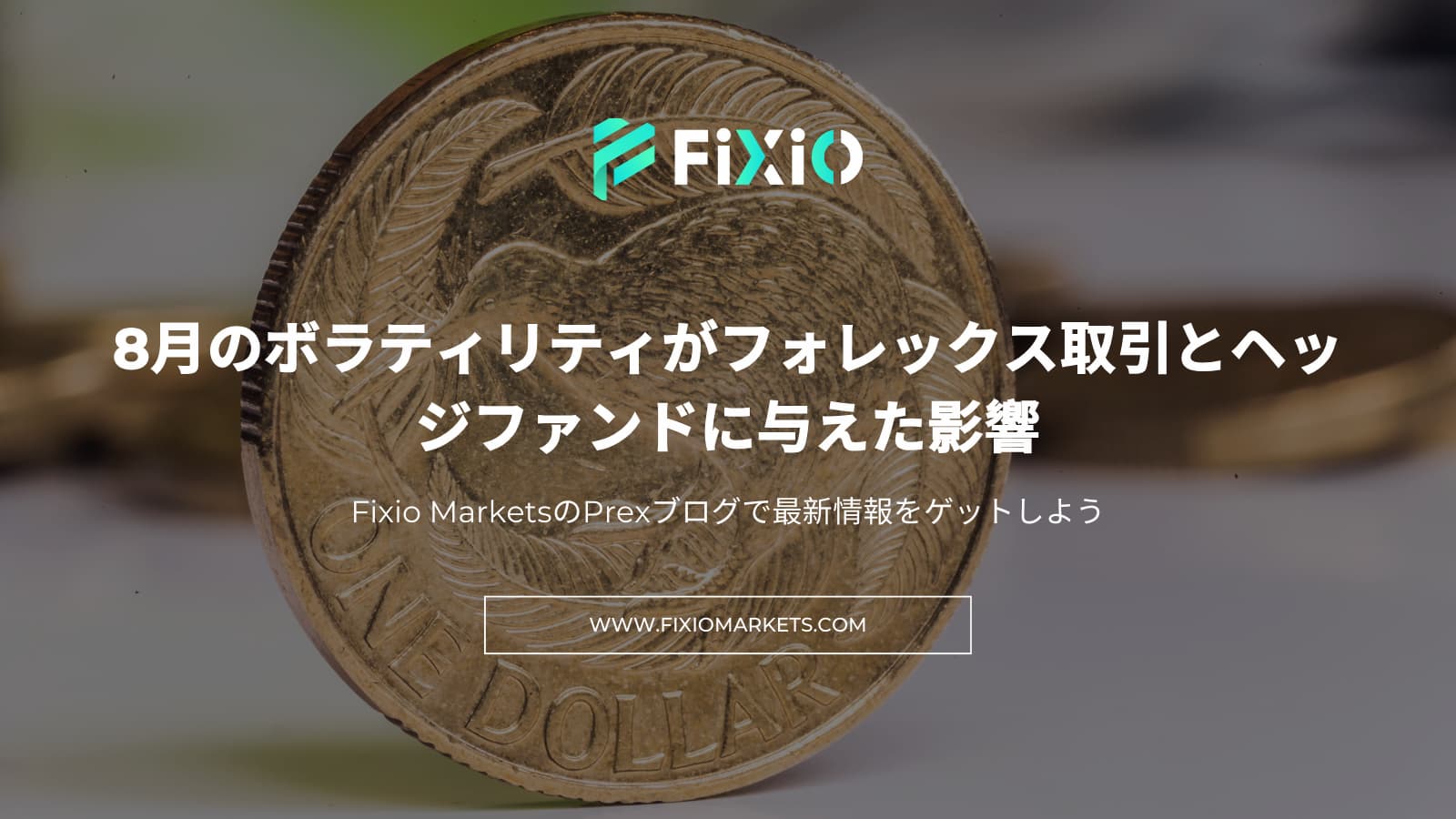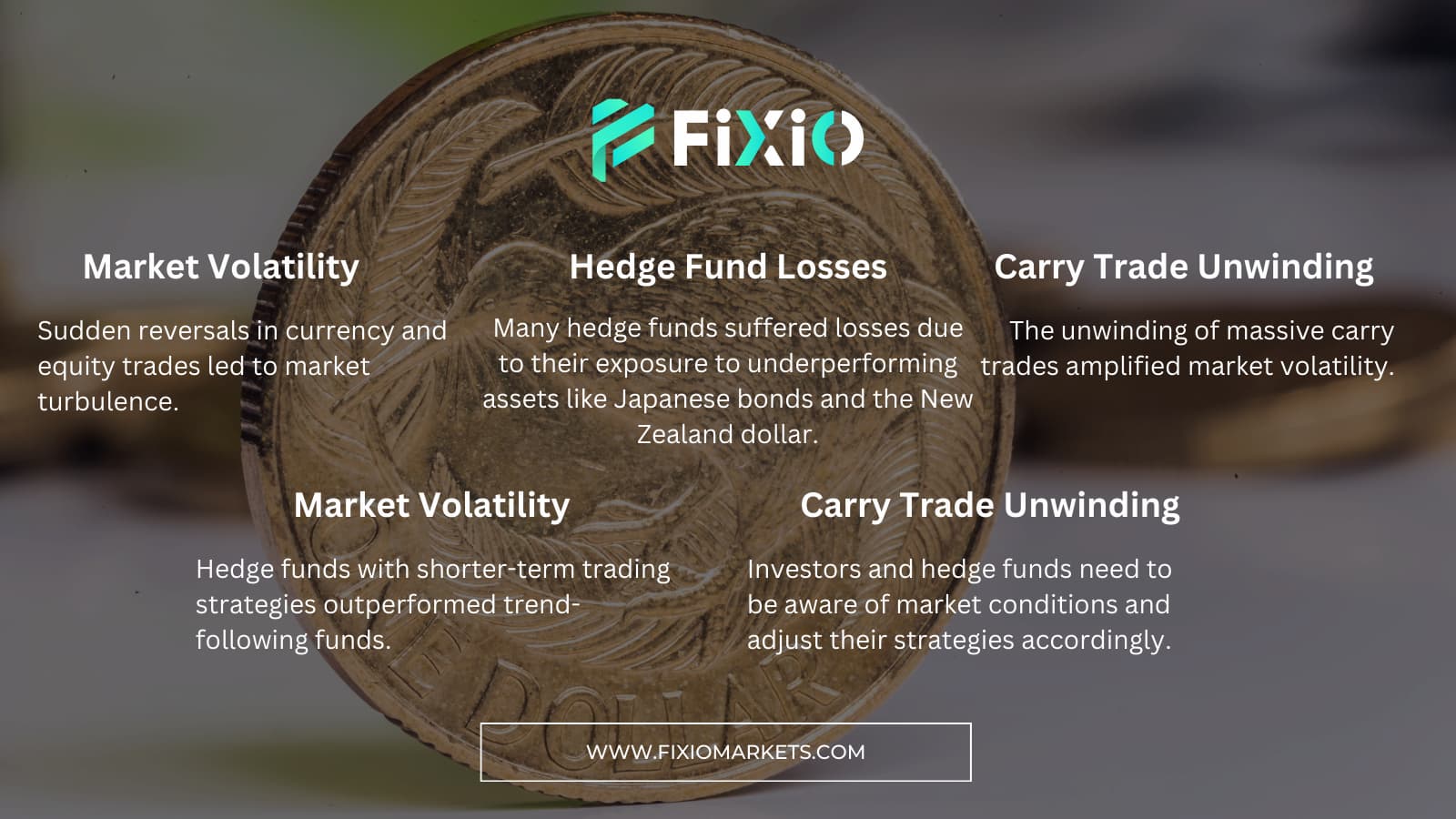
In August, global markets faced significant volatility, causing ripple effects across several asset classes, including the New Zealand dollar and Japanese bonds. According to data from Societe Generale, trend-following hedge funds, which rely on algorithmic strategies to capture price movements, took a hit. The sharp shifts in currency values and stock prices caught many funds off guard, leading to notable losses.
August’s volatile conditions were primarily driven by the sudden reversal of well-established trades, specifically in currencies and equities. Despite being designed to navigate such shifts, many hedge funds were unprepared for the speed and severity of the changes. The New Zealand dollar, which had previously been a favored asset, quickly lost value as the market turned.
Trend hedge funds typically use algorithms to identify market patterns, allowing them to ride price movements. These funds often take long positions in assets like Japanese government bonds, as well as the New Zealand and Australian dollars. However, August proved to be a challenging month for this strategy, as these positions did not perform as expected.
While some hedge funds held bullish positions, others may have maintained bearish stances. Regardless of the direction, many funds saw significant losses, particularly in Japanese bonds and the Nikkei 225 index. These poor performances were compounded by the unpredictable nature of global equity and forex markets, further affecting hedge fund returns.
One of the main contributors to August's volatility was the unwinding of massive carry trades. Carry trades involve borrowing low-yielding currencies, like the Japanese yen, to purchase higher-yielding assets. As market conditions changed, these trades were quickly unwound, triggering a vicious cycle of selling, increased volatility, and falling asset prices.
This feedback loop had a notable impact on both equity markets and foreign exchange markets. The Mexican peso, British pound, and euro, which had been underperforming earlier in the year, saw brief rallies in August. On the other hand, hedge funds holding positions in Japanese bonds, the New Zealand dollar, and German equities found themselves facing unexpected losses.

Interestingly, while many trend-following funds struggled, hedge funds engaging in shorter-term trades outperformed. According to Societe Generale’s data, firms like Revolution Capital Management, Altiq, and Crabel Capital Management posted positive results in August. These firms, which focus on more agile, short-term trading strategies, reported returns between 3.8% and 4.5%.
In contrast, long-term trend-followers like Eclipse Capital Management and Drury Capital Management experienced double-digit performance declines. Despite this, some funds remain positive for the year. Drury Capital Management, for instance, is still up 3.45% for 2023, while SEB Asset Management posted a 0.57% gain. This highlights the importance of strategy flexibility and timing in navigating volatile markets.
The market volatility in August served as a reminder of the challenges and risks that come with Forex trading and hedge fund strategies. Even the most advanced algorithmic models can falter when markets behave unpredictably. Investors and hedge funds need to be aware of market conditions and adjust their strategies accordingly.
To stay informed on the latest Forex trading news and analysis, visit our website: FIXIO Markets.

Learn August's market volatility affects. Discover the key factors behind sudden shifts in asset performance and the role of carry trades.
Superior trade execution & trading conditions with the NDD method.

The online FX industry provides a platform for investors worldwide to engage in the buying and selling.

Subscribe to our daily newsletter and get the best forex trading information and markets status updates
Trade within minutes!
Comment (0)